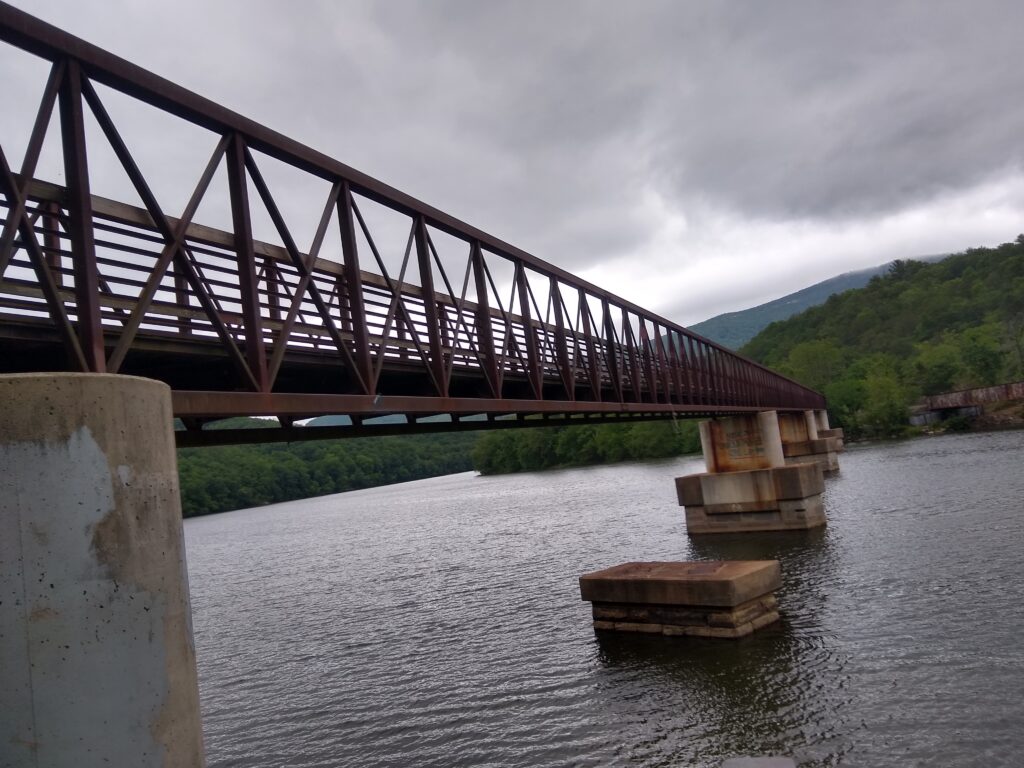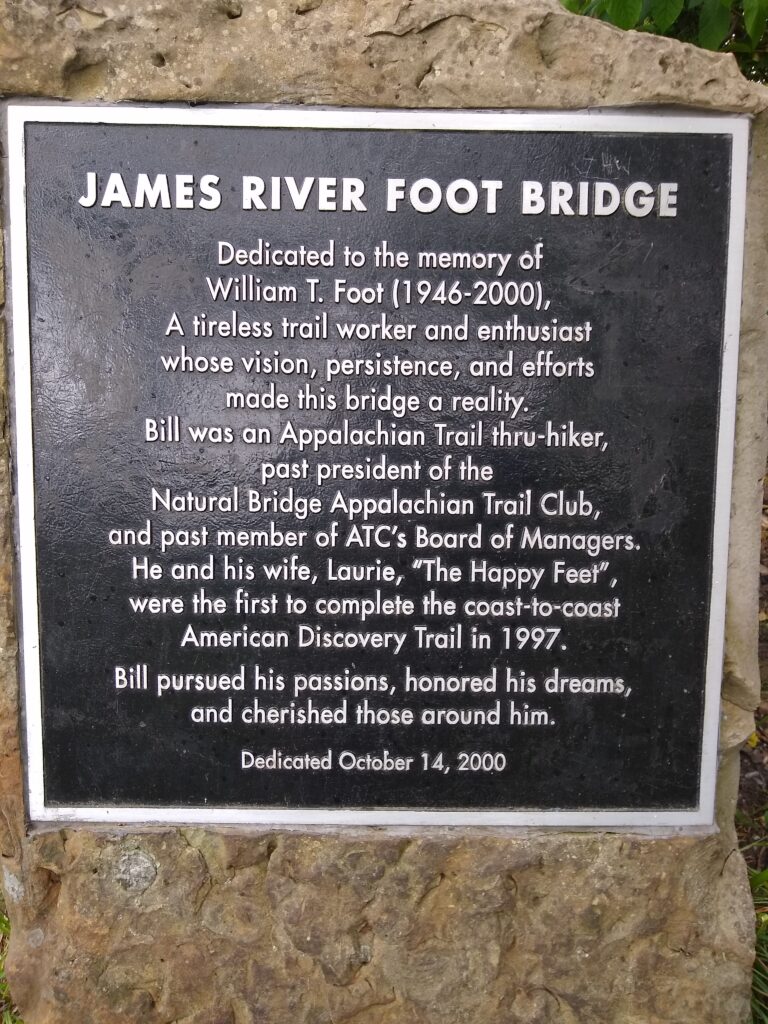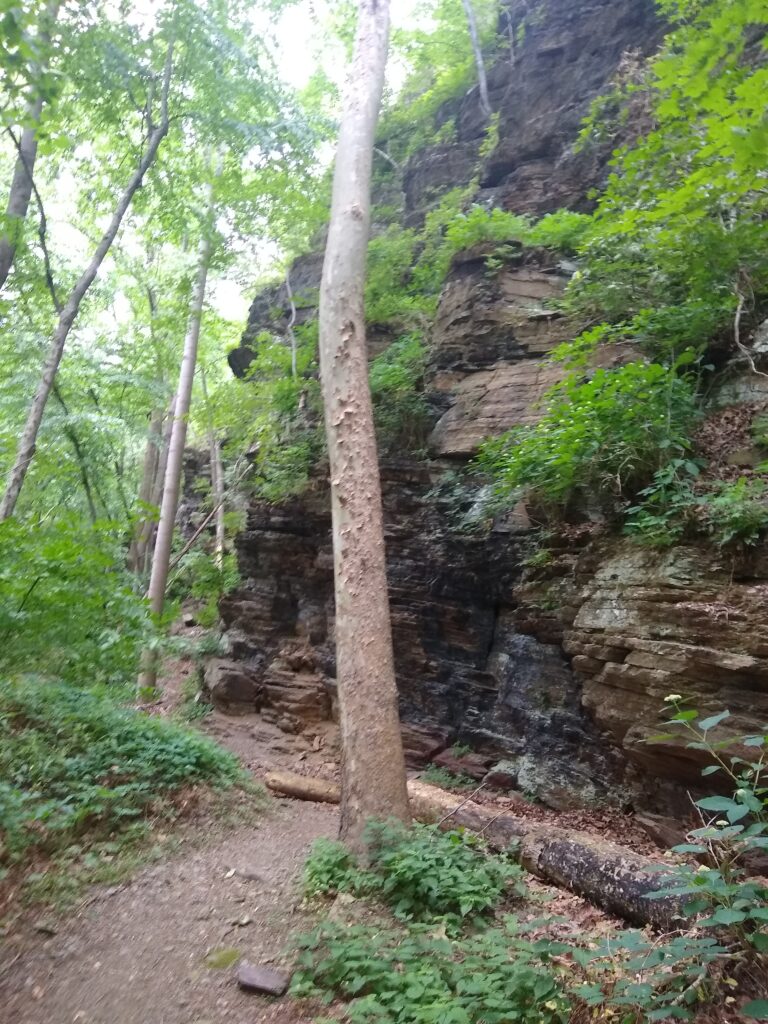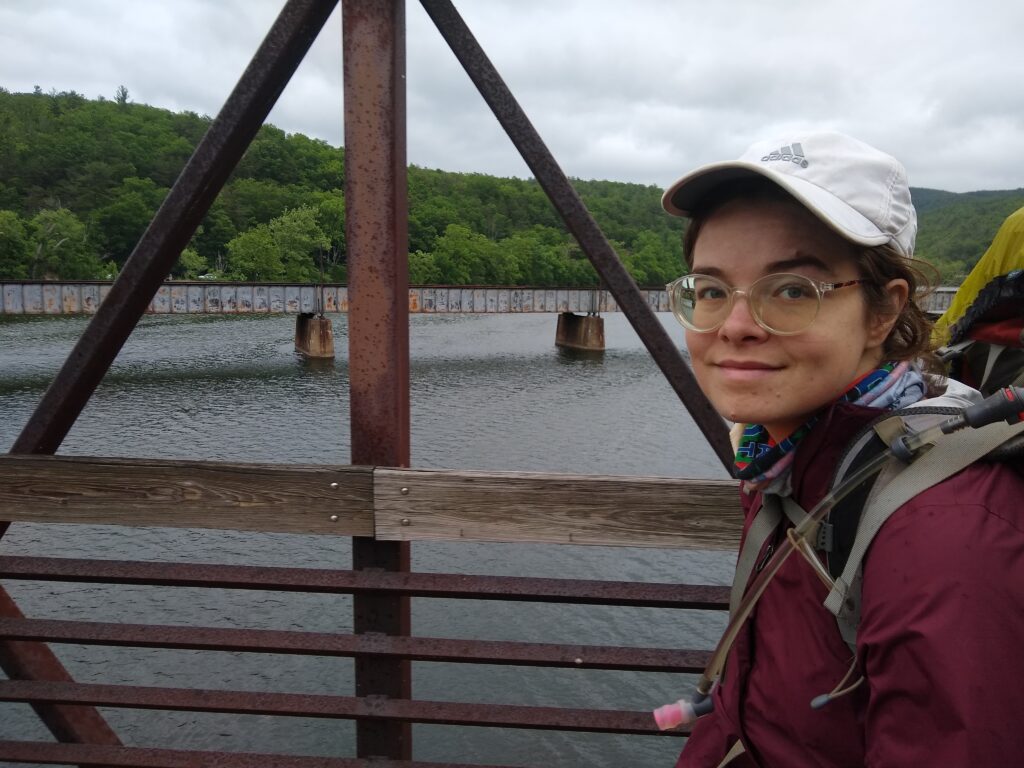- Miles 779.6-787.2 (7.6 mi.)
- Total ascent: 1339’; descent: 3015’
We’re camping in a city park tonight, something that would never be allowed in any town where I’ve lived.
Glasgow maintains not just space for tenting, but a shelter, a shower, some Porta-Potties, and a long bank of trash and recycling cans. Also within walking distance are Dollar General, a pizza joint, and a laundromat.
The only thing Glasgow doesn’t have, unfortunately, is a good way for hikers to get to town. We got lucky, having hiked beyond the point where we lost cell service. After crossing the James River Bridge, the longest footbridge on the AT and one hikers are supposedly fined for jumping from, we stumbled upon a series of tracks and a road. Although someone said town could be reached with a two mile walk along the tracks (rather than a six mile walk along the road), we decided to try our luck hitching.
Within 10 minutes, a truck stopped for us and another couple. The driver, an older gentleman, said he always makes a point to pick up hikers and took us right to the park where we’re tenting.
As a Midwesterner, it’s incredible to me that thousands of hikers per year successfully hitch places. One reason the Appalachian Trail “works” is the moral premium the community puts on helping out strangers. It makes me want to unlearn my own fears associated with people in need. Someone looking for a ride or a meal or a place to stay has more incentive to play by the rules than the privileged do.
Part of what makes the AT magical is that it puts each person in positions of power and need. Everyone here has run short on food where more couldn’t be simply bought, and everyone has found themselves with a surplus. Everyone has wanted someone to take their photo at a landmark, and been in a position to take others’ photos. Everyone has reached a busy tent site, too tired to walk to the next one; everyone has arrived early and had to make room for latecomers.
The outdoors is the great equalizer. It’s impossible to buy your way out of occasionally relying on others, and equally impossible to make it through by relying entirely on them. The most successful people seem to be neither the social butterflies nor the rugged individualists, but the ambiverts.
We’ll be practicing adaptability in this next cycle in a few ways. We have $4 in paper currency and no way to get more until Waynesboro, in 80 miles, which could get interesting. We’ll also have fewer site options, so we may not get our pick of places to stay. We expect to have little cell service and no opportunities to recharge our phones for the next five days.
Rachel and I have discussed this before, but hiking the trail really is like playing an RPG. Sometimes, you run into a guy giving out ice cream; sometimes, that water source you were counting on is dry. Your inventory is limited, and the more you’re carrying, the less quickly you can move. You can interact with the NPCs, or not. You can be good, evil, or a bit of both.
There’s a lot in your control, but also a lot that just happens to you. A lot of what’s in that latter category was, at some point, in someone else’s control. You learn to do things like leave extras in hiker boxes, and notes about wild animals ahead, because someone did those things for you.
Your choices almost always have more impact on others than you think. I hope you, and I, make them with that in mind.




One reply on “5/29: Marble Spring to Glasgow, Virginia”
Thankfully, I had a millennial handy to decode RPG (role playing game) and NPC (non-player character)….